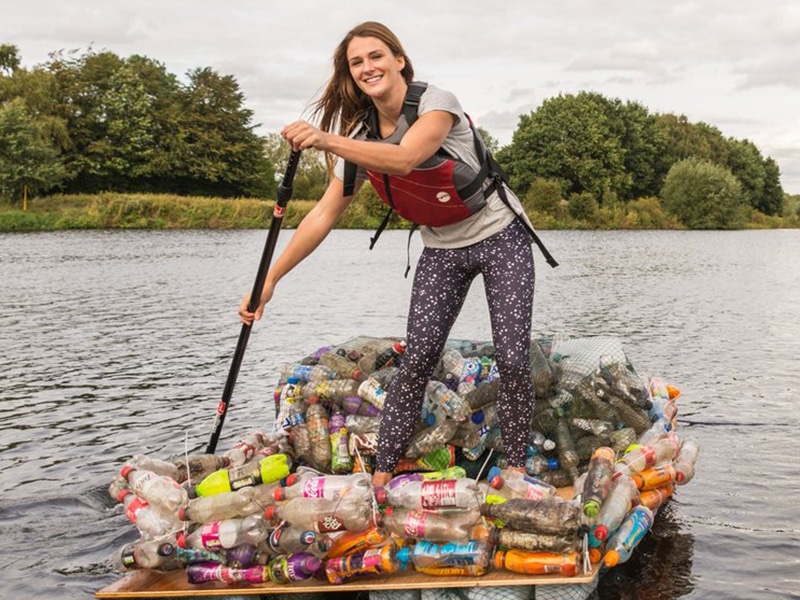
Lizzie's plastic paddle board
There is a risk that, as the awareness of the negative impact of single use plastic grows, consumers begin to demonize its use across practical applications where its purpose is valid and worthwhile. The important area to explore and find solutions to is ‘single use’ and how we can retain single use plastic within a circular economy if we are unable to find an alternative solution altogether.
There are an increasing number of brands working towards a fully circular approach with the aim of retaining single use plastic within a loop and, ultimately, out of nature. I find this an interesting approach but feel there needs to be measures in place to account for when it does leak out the loop – there needs to be accountability to sit alongside the commitment.
UK PLASTIC PACT.
I am optimistic about the UK’s Plastic Pact initiative. They’re working with businesses all around the UK that are responsible for about 80% of UK/global plastic packaging manufacture, to try and reduce the amount of packaging that they’re using in their products by 2025.
As consumers it’s important that we continue to pressure businesses and manufacturers to adopt a more sustainable approach to their products and packaging, whilst being mindful that these are all processes that can take time. The culture of naming and shaming shows brands we want change, and boycotting products demonstrates that we are taking action, but we also risk pushing brands into making short term decisions to firefight against the issue and that can lead to more damaging consequences long term. The Plastic Pact is a way of accelerating the Government’s commitments to eliminate unnecessary plastic waste and packaging by working with businesses to achieve a common goal.
PLASTIC SINGLE USE BOTTLES.
The single-use plastic water bottle is an issue that is getting a lot of attention at present and brands are approaching the ways to tackle it very differently.
- Evian has gone down a 100% circular recycling route.
- Coca Cola is embracing a ‘social economy’; finding ways to work with developing countries to get people paid for collecting this rubbish.
Companies are starting to re-think who owns their packaging after the point of purchase. Under the current system, brands are selling the product and the packaging to consumers and, as such, companies produce the cheapest possible packaging to generate maximum profit.
Take the example of plastic bottles, if the manufacturer retained ownership of the product by collecting and reusing it infinite times it then becomes a long-term asset that will eventually depreciate in value. That approach – with a long term vision in mind – is an attractive proposition for manufacturers and by investing in more resources to develop innovation like this it would have positive implications for the planet and avoid any more risky PR crises’ too.
PLASTIC PATROL.
Litter-picking by mobilizing communities through activity and educating individuals about their contribution to the plastic crisis is an important and effective way of driving change at grassroots level.
Plastic Patrol, the not-profit I set up a few years ago is practical, real-world tool that combines grassroots activism, crowdsourced data via geospatial technology and scientific insight to deliver tangible commitment from manufacturers. Our app allows people to log any plastic they find all over the world – on mountains, rivers, canals and parks – helping us to understand the type of plastic, composition, distribution and, ultimately, the brands responsible.
ZERO WASTE STORES
There’s a lot of small, zero-waste stores launching all over the UK at present. It’s making plastic-free shopping more accessible, driving people away from big supermarkets and helping bring the idea of small, local supply chains to life. I don’t see any downsides to these kind of stores.
GERMANY, SCANDINAVIA: BOTTLE DEPOSIT SCHEME.
We should look up to countries like Germany and others in Scandinavia and learn from their approach to recycling. The bottle deposit scheme is tried, tested and very successful – we know it can work with the right infrastructure in place. During our Plastic Patrol community cleanups, around 70% of what we log in the app is plastic bottles. Introducing a scheme like this would help to significantly reduce the amount of excess waste because we are putting value on it.





